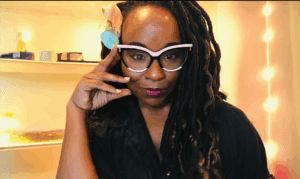In 2000, George W. Bush won the presidency despite losing the popular vote, something that has only happened three other times in U.S. history. That event was so rare that most supporters of Al Gore, Bush’s opponent, didn’t even know it was possible.
In that same election, the U.S. Supreme Court had to weigh in on a decision that essentially turned the presidency over to Bush. That is something even more rare, having only happened in 1876 in the presidential race between Rutherford B. Hayes and Samuel Tilden.
Voter turnout has been generally on the decline since the 1960s. In the 1960 presidential race, the turnout was over 63 percent and declined to a low of just over 49 percent in the 1996 election. But since the Bush/Gore election, numbers of voters have increased nearly every election cycle.
Since that time, each presidential election has been exceedingly close. With the exception of McCain/Obama, elections have been within four points, and two of those elections have been within two points.
It appears that the contested election of 2000 renewed a sense of ownership among the electorate. People realized that their voices mattered.
In his 2005 book “Freakonomics,” Steven Levitt notes several times that “statisticians don’t vote.” He makes the case that statisticians know that the probability of a major election being determined by a single vote is practically zero. It has never happened in a presidential race, and only once has a member of the House of Representatives won by a single vote (a 1910 election in New York).
But Levitt has a problem with his theory. He proposes that elections are not won by a single vote and yet that presumes that only one statistician is withholding a vote. If, for sake of argument, there are 1,000 statisticians in the country (I believe there are MANY more), then what Levitt should be asking is, “How many elections are won or lost by 1,000 votes?” In that case, the answer is “many”!
My point is, as your civics teacher told you in high school, your vote matters. Our political system was carefully crafted and modified over time to ensure that the people, not just an elite aristocracy, would select our leaders. I’m grateful for the close races of recent history that have renewed interest in the political system, regardless of one’s political position.
By the time I write my next column, we will know who will serve as the next president of the United States. Whether you are a supporter of Clinton, Trump, Johnson, or Stein (yes, there are four, and yes, I left out one or two others, but you get the point), get involved.
I’ve traveled the world and there is no better political system, flaws and all, than our own. Regardless of who wins, our country is strong. We are not a dictatorship or a banana republic. That is the gift our founding fathers gave us.
A student once “tattled” on classmates, telling me that “a bunch of your students are arguing at lunch about what you said in class!” The comment was supposed to upset me, but it had just the opposite effect. My students were spending their free time discussing my subject! I couldn’t have been happier – even if they didn’t like what I said.
Generally speaking, political discourse is healthy even though it can be emotional. The challenging conversations that people on opposite sides of the political aisle might have are more desirable than apathy or complacency.
I would not suggest that it doesn’t matter who gets elected, but I do contend that no single individual will sink our political system. If our country falls into decline — and history teaches us that it eventually will — it will happen because we quit caring enough to participate.
[Gregory K. Moffatt, Ph.D., is a college professor, published author, licensed counselor, certified professional counselor supervisor, columnist and public speaker. He holds an M.A. in Counseling and a Ph.D. in Psychology and has taught at the college level for over 30 years. His website is gregmoffatt.com.]












Leave a Comment
You must be logged in to post a comment.